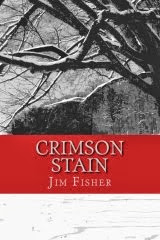If I had ever turned in a 146-word paper to one of my professors, I can assure you I would not have received an A- even if they were the most brilliant 146 words written in English. But apparently if you're an athlete at the University of North Carolina, those 146 words don't even have to be grammatically correct. Former professor Mary Willingham provided the essay as an example of the sort of "work" that UNC athletes are allowed to get by on at the school, and the image has certainly sparked conversation around the topic.
It's one thing to know that athletes who attend schools where sports are a priority get special treatment and are often given grades they don't deserve just to keep them on the team. But it's a whole new thing to see a one paragraph essay that makes up a fictional conversation between Rosa Parks and a bus driver and know that the jock who wrote it got a better grade than a lot of students got for their well-reseached 10-page essays. But according to Willingham, who spent 10 years tutoring student athletes before turning whistleblower, this sort of thing happens all the time.
"I became aware of this 'paper class' system, she told ESPN, "where students would take classes that didn't really exist." Formerly called "Independent studies," these "paper classes" involve no attendance, and in fact only require students to write a paper, at least according to Willingham. And the papers the students produce are far from college quality; in fact, Willingham says, some of the players only have a second grade reading level, which for an adult is functionally illiterate….
In the ESPN segment, Willingham's allegations are backed up by former UNC athlete Duenta Williams, who added that advisors at the school were mostly interested in ensuring that he remained eligible to play, not in ensuring he got the best education possible. They both also claim that the NCAA turned a blind eye to these practices….[If American high schools didn't graduate illiterates, we'd still have college football, it just wouldn't be as professional. The problem is in our public education system where sports is also more important than academics.]
Emma Cueto, "This 146-Word Essay Earned UNC Athlete An A-, Says Former Professor," Clementinedaily.com, March 28, 2014





